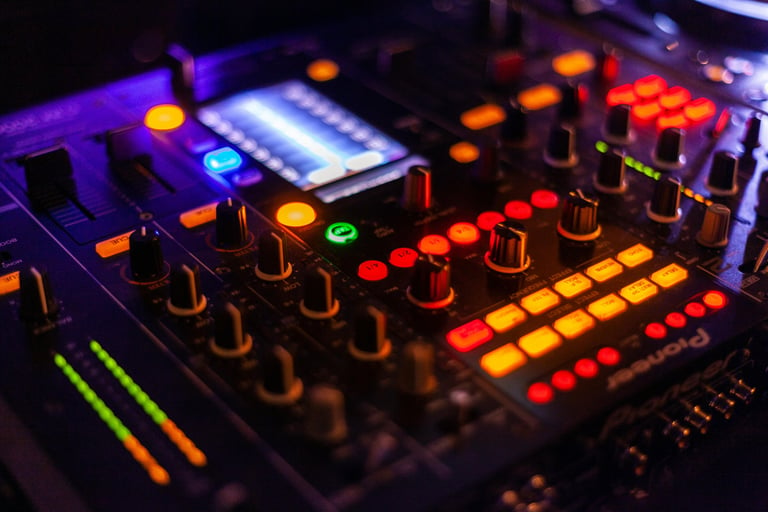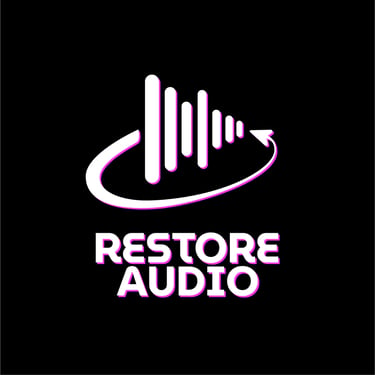Troubleshoot Audio Issues with Your DJ Setup
Something's up with the sound, and that sucks, so here we'll get you spinning beats again without a struggle!


A Step-by-Step Guide
As a DJ, nothing is more frustrating than encountering audio issues in the middle of a gig. Whether you're dealing with static, dropouts, or distorted sound, knowing how to troubleshoot these problems quickly and efficiently is essential. This guide will walk you through the most common audio issues and how to resolve them.
No Sound Output
Check Connections
Cables: Ensure that all your cables are securely connected. Loose or faulty cables are often the primary culprits of no sound output. Check the connections between your mixer, controller, speakers, and any external devices.
Outputs: Verify that your output settings on your DJ software are correctly assigned. Sometimes, the software might not recognise the correct output device.
Power Supply
Double-check that all your devices, including speakers and mixers, are powered on and connected to a power source. Also, verify if the power adapters are functional.
Volume Levels
Make sure that the volume levels are up on your mixer, speakers, and software. It might sound obvious, but a muted channel can be easily overlooked.


Distorted Sound
Gain Staging
Improper gain staging is the most common cause of distortion. Ensure that your input levels are set correctly on each channel. Avoid pushing the levels into the red zone; this often results in distortion. Keep your channel gain and master output levels balanced.
Faulty Cables
Distorted sound can also be due to bad cables. Try swapping out the cables with new or known good ones to see if the problem persists.
Speaker Issues
If the distortion is only on one speaker, the issue might be with the speaker itself. Test the speaker by connecting it to another audio source to see if the problem continues.
Crackling or Popping Sounds
Interference
Wireless devices, such as phones or routers, can interfere with your audio equipment. Keep your setup free from other electronics that might cause signal interference.
Ground Loops
Ground loops can also cause unwanted noise. Use a ground loop isolator or ensure all equipment is plugged into the same power source to minimise this risk.
Sudden Drops in Volume
Overheating
Some audio equipment will reduce volume or shut down when they overheat. Ensure that your gear has proper ventilation and isn’t placed near heat sources.
Automatic Volume Limiting
Some mixers or speakers have built-in limiters that kick in when the volume is too high. If your setup has such features, try lowering the output levels and see if the volume stabilises.
Software Issues
Sometimes, software glitches can cause sudden volume drops. Restarting your DJ software or your entire system can often fix this problem.


Unbalanced Sound Between Speakers
Panning
Check your mixer’s panning settings. If one speaker is louder than the other, the pan control might be shifted too far to one side.
Speaker Placement
The physical placement of your speakers can affect perceived volume. Ensure both speakers are placed symmetrically and at equal distances from the listening area.
Check Cables and Connections
Uneven sound can also be due to poor connections or damaged cables. Swap cables between speakers to see if the problem is related to wiring.
Hum or Buzzing Noise
Grounding Issues
Hum or buzzing noises are often caused by grounding issues. Ensure all your equipment is properly grounded. Using a ground lift adapter can also help resolve this issue.
Cable Quality
Low-quality or damaged cables can introduce noise into your setup. Use high-quality, shielded cables to minimise interference.
Eliminate Interference
Move your setup away from potential sources of electrical interference, such as fluorescent lights, refrigerators, or other appliances.
Final Word
Audio issues can be a headache, but with a systematic approach, they are usually easy to fix. By checking connections, adjusting settings, and isolating the problem, you can quickly get back to delivering a seamless DJ performance. Keep this guide handy, and you’ll be well-prepared to troubleshoot any audio issues that come your way.
Click to share
SOCIALS
Discovery Court - 551 Wallisdown Rd - Poole - BH12 5AG


SOCIALS
Discovery Court
551 Wallisdown Road
Poole
BH12 5AG
ADDRESS


